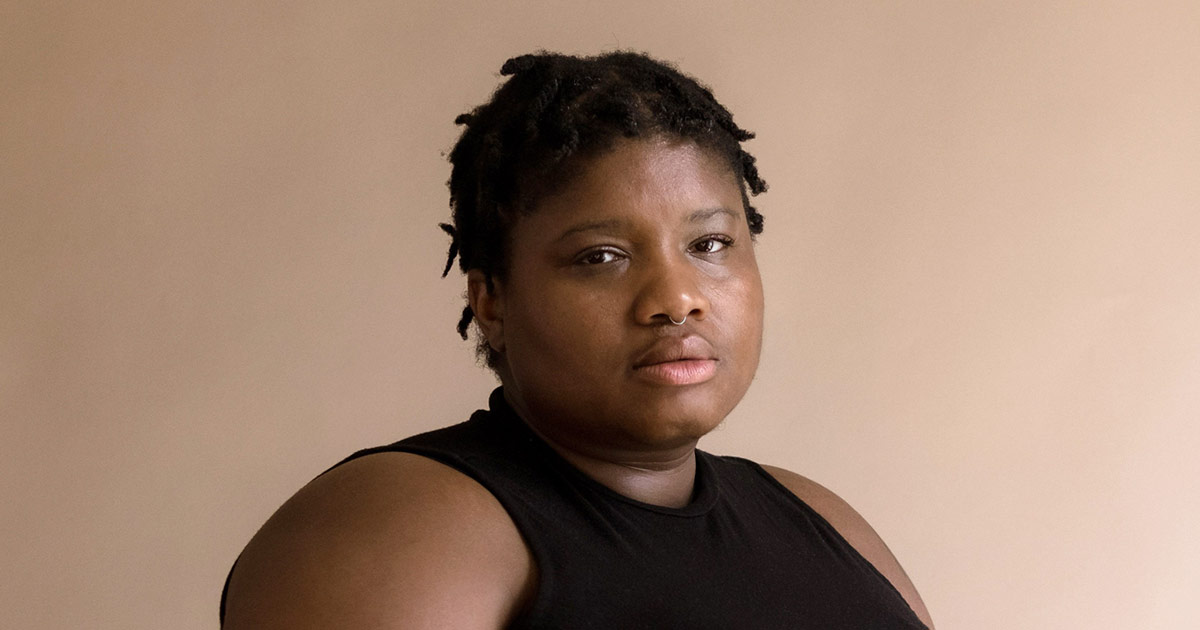
Jessamyn Stanley—who describes herself as a fat, queer, Black person—is refreshingly honest and self-accepting. She also has a lovely way of bringing self-acceptance out in others. We had a conversation with her this month about the transformative possibilities of yoga—even if you start with a free three-minute video.
Stanley is the author of Yoke: My Yoga of Self-Acceptance and EveryBody Yoga: Let Go of Fear, Get on the Mat, Love Your Body. She will speak at the Pennsylvania Conference for Women on November 10th.
Q: You’ve shared that you came to self-acceptance and wellness during a dark period in your life. Do you see a parallel opportunity for good to come from the challenges so many are facing now?
There is much suffering in life. It’s a constant we can expect. However, most people are drawn to a specific wellness practice –distance running, Tai Chi, yoga, for example –invariably come to a commitment through some struggle.
We are collectively going through intense struggles now. We’re being forced to accept the struggles that have always been and those from climate change and COVID. But if you can acknowledge that you are struggling or have any source of sadness, that is always the space on which to build a wellness practice.
Q: Your new book is Yoke: My Yoga of Self-Acceptance. What is “Yoke,” and how can yoga help us develop self-acceptance?
Yoga means to bring together. Yoking is the same idea – joining together. I have found I yoke not just when I am doing Downward Dog but when I am accepting internalized racism or remembering what it is to be sexually assaulted. So, ultimately yoga is truly the practice of acceptance—acceptance of everything as it is. The book’s goal is that anybody who reads it can find the confidence to accept themselves through the example of another human being.
Q: We live in a time when so many challenging things are happening; it can be hard to hold both the dark and the light, as you say. Why is it important to try, and how do you recommend doing it?
Yoga offers the opportunity to practice this on a practical level. You have to think about where you put your weight, where your hands go, and where your feet go? What do you do when you experience struggle? How do you stand, knowing it is not always going to look pretty and happy? All any of us can do is the best we can. Submission is the hardest part. We are so thoroughly trained to wear armor and stand strong for other people. The ironic twist is true power is in submission, in putting down your shield, in standing with the power given you on your first day of life.
Q: Many of us feel we don’t have the time to slow down enough to practice something like yoga. What do you recommend?
It’s very hard when you’re going a million miles a minute to stop. So, just start wherever you are with whatever you have access to. If you can do a free yoga video for three to five minutes, that’s perfect. Take small incremental steps, and don’t beat yourself up about not following a specific schedule for 30 days. Be easy on yourself, go slow, and find something that fits you right now.
Q: Many women struggle with perfectionism. How do you deal with that?
A couple of things are helpful for me. One is letting myself feel whatever I feel whenever I feel it and not scolding or chastising myself or falling into a perfectionist loop. Also letting myself get tired and feel all of the perfectionist sadness. I beat myself down, and from that place, breathe and practice the postures. From there, I start to move forward sometimes without even being aware of it.
Q: You’ve said that yoga is the perfect container for us to deal with systemic racism and other systemic issues. What do you mean?
Yoga is the base on which we can have all these hard conversations. What is needed when talking about systemic racism or any systemic problem is compassion for everyone. You can’t experience compassion with other people if you are not experiencing it yourself. That is what practicing does. When you accept yourself, there is no other thing to feel but compassion. And when you practice compassion for yourself, you have to practice it for other people.
When we say we want to dismantle systemic racism, everyone plays a different role in that—all people of all colors on all stages. As a fat queer Black person, I have a lot of feelings about this. It makes it hard even to hear someone else. But I know they experience strong feelings too. The person who is taught to hate Black people is also someone I can have compassion about. I don’t have to agree with them. That’s not what’s important. What’s important is to hear each other and know that every other person is deserving of life and goodness. Then we can come to a place of creating a different world.
Q: Your first book, which came out before the pandemic, was Every Body Yoga: Let Go of Fear, Get on the Mat, Love your Body. What is the most important new thing you learned about letting go of fear lately?
If fear is there, I know it is good. I know it is something I need. Every good thing in life is scary because it is unknown. Fear is also an incredible motivator, the stimulus of so much. We think life would be so sweet if you never felt sad or afraid, but I don’t know if that is the case. I think life is sweet because of fear. It challenges us and allows us to see ourselves.